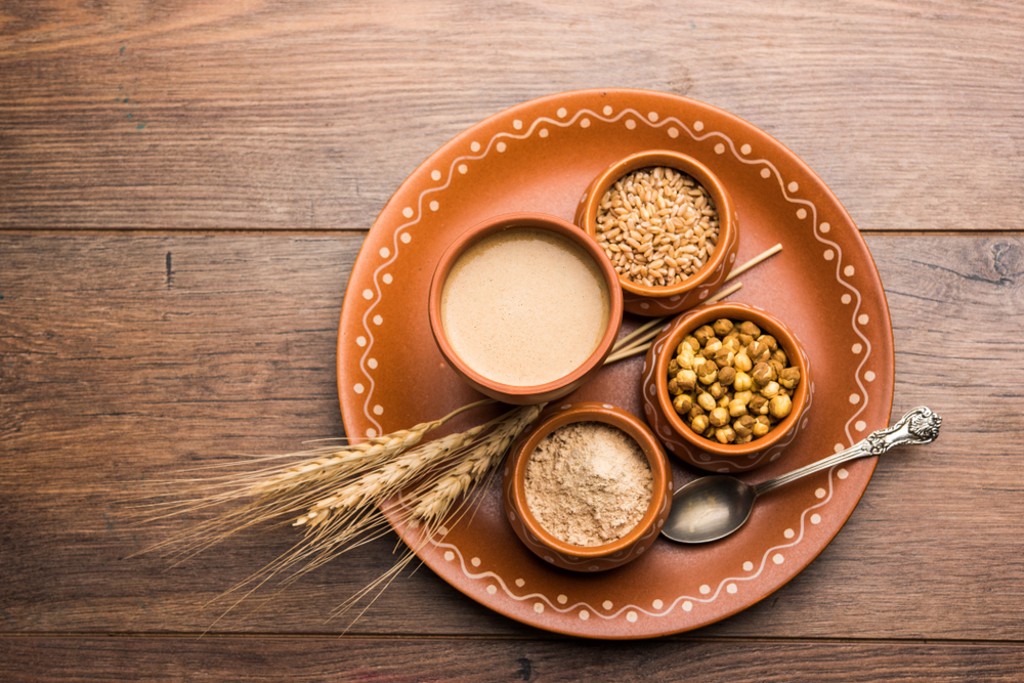Roasted gram, also known as chana or chickpea, is a nutritious and delicious snack that can offer many health benefits. Roasted gram is a staple food in many parts of the world, especially in India, where it is often eaten with jaggery or gur. Roasted gram is rich in protein, fiber, antioxidants, and minerals that can help you lose weight, boost your energy, promote your heart health, and enhance your skin health. In this article, we will explore roasted gram’s nutritional value and health benefits, and how you can incorporate it into your diet.
Nutritional Value of Roasted Gram
Roasted gram is a low-calorie and high-protein food that can keep you full for longer and prevent overeating. One cup of roasted gram (about 92 grams) provides about 364 calories, 19 grams of protein, 54 grams of carbohydrates, 12 grams of fiber, and 6 grams of fat1. Roasted gram also contains various vitamins and minerals, such as folate, iron, magnesium, phosphorus, zinc, copper, manganese, and selenium1.
Some of the notable nutrients in roasted gram are:
- High protein and fiber: Roasted gram is one of the best plant-based sources of protein and fiber that can support your muscle growth, digestion, blood sugar control, and cholesterol levels.
- Rich in antioxidants: Roasted gram contains polyphenols, flavonoids, and phenolic acids that have antioxidant properties and can protect your cells from oxidative stress and inflammation.
- Lowers cholesterol: Roasted gram can help lower your LDL (bad) cholesterol and triglycerides levels by binding to bile acids in your intestine and preventing their reabsorption into your bloodstream.
Health Benefits of Roasted Gram
Eating roasted gram regularly can provide you with many health benefits, such as:
- Aids weight loss: Roasted gram can help you lose weight by increasing your satiety, reducing your appetite, and boosting your metabolism. Studies have shown that eating roasted grams can reduce your calorie intake by 12% and increase your fat burning by 4.5%.
- Boosts energy: Roasted gram can provide you with a steady source of energy throughout the day by supplying complex carbohydrates that are slowly digested and absorbed into your bloodstream. Roasted gram also contains iron that can prevent anemia and fatigue.
- Promotes heart health: Roasted gram can improve your heart health by lowering your blood pressure, cholesterol, and inflammation levels. Roasted gram also contains potassium that can regulate your heartbeat and prevent arrhythmia.
- Enhances skin health: Roasted gram can enhance your skin health by nourishing it with vitamins, minerals, antioxidants, and phytochemicals to prevent acne, wrinkles, pigmentation, and infections. Roasted gram also has anti-inflammatory and antibacterial properties that can soothe irritated skin and heal wounds.
Incorporating Roasted Gram into Your Diet
Roasted gram is a versatile food that can be eaten in various ways. Here are some ideas on how you can incorporate roasted gram into your diet:
- Snack on it: You can simply snack on the roasted gram as it is or mix it with other nuts, seeds, dried fruits, or spices for a crunchy and tasty treat.
- Add to salads or soups: You can add roasted gram to your salads or soups for extra texture and flavor. You can also make a roasted gram dressing with olive oil, lemon juice, garlic, salt, and pepper.
- Use as a side dish: You can use roasted gram as a side dish for your main course by sautéing it with onions, tomatoes, green chilies, ginger, cumin seeds, turmeric powder, salt, and coriander leaves.
Conclusion
Roasted gram serves as a nourishing, tasteful snack, contributing to weight reduction, vitality, cardiac wellness, and skin vitality. With an abundance of protein, fiber, antioxidants, and minerals, roasted gram bolsters overall health. Incorporation of this snack into a meal plan comes with ease, as it can be eaten as is, added to salads or soups, or served as an accompaniment. Experience the remarkable benefits of roasted gram today.


